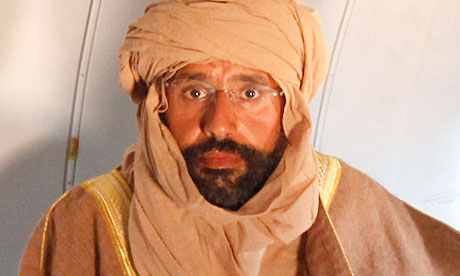For five years a man named in a British court as "the general" has been pursued by detectives in a multimillion-pound operation.
Over the past decade Robert Dawes has moved from a two-up, two-down terraced house on an estate outside Nottingham to a base in Dubai and finally to a villa on the Costa del Sol.
Police believe he has left a trail of destruction as one of the heads of acrime syndicate that flooded the UK with millions of pounds of cocaine, heroin and cannabis. He has been identified in nine UK investigations involving large scale shipments.
Dawes is wanted in the Netherlands in connection with the murder of a teacher, Gerard Meesters; in Spain, where police have identified him as "the boss of an important English drug trafficking organisation"; and in the UK, where Nottinghamshire detectives are seeking him over the alleged commissioning of the murder of David Draycott in October 2002.
So when investigators from the Serious Organised Crime Agency, working with Spain's Guardia Civil, had Dawes secured in a Madrid prison this spring to face trial over the seizure of 200kg of cocaine, the belief was that the reign of a man described by Soca as a "highly significant international criminal" had ended.
But the Guardian has discovered that Spanish judges have been forced to drop the trial and free 39-year-old Dawes because the British authorities had failed to respond for months to a request for assistance.
Dawes is now back in his enormous villa near Benalmádena on the Costa del Sol with his wife and three children, enjoying his freedom.
After Dawes's release a few weeks ago, the Spanish courts issued a statement which made clear their hand had been forced by the failure of the British to respond to a request for documents sent in April through the highest diplomatic channels.
"The provincial court in Madrid has revoked the indictment of Robert Dawes ... and so he is at liberty," the statement said. "The magistrates ... understand that... it is necessary to wait for a response from the Commission of Dubai, with reference to the searches in the case, and, above all, the Commission of the United Kingdom.
"When the judicial authorities of those countries respond with evidence the case will be taken up again, but neither of the two commissions has yet commented and there is no indication of when they might do so."
Soca officials have been left embarrassed by the bureaucratic bungling. They say the request via a letter rogatory – the official method of requesting assistance between countries – was only received by the Home Office in August before being forwarded on to them in the same month.
The letter rogatory was sent to the Home Office via Eurojust, an organisation based in The Hague that is supposed to speed up co-operation on major criminal investigations between EU countries.
Asked by the Guardian this week about the case, Soca officials said they were planning to send an official to hand deliver the documents. A spokesman said: "We are supporting this Spanish-led investigation. Upon receipt of their request for evidence we took immediate action, in conjunction with the Crown Prosecution Service, to collate the material required.
"This process must take into account various legal and operational issues but it is Soca's intention to provide the material to the Spanish at the very earliest opportunity."
But it is not the first time that Dawes has slipped through the net, and some of his former associates have refused to co-operate with the authorities in the past because they believed he was an "asset" who was being protected.
Dawes grew up on the Leamington estate in Sutton-in-Ashfield, Nottinghamshire, and is thought to have began his criminal career in the 1990s working as an enforcer. By 2000 his name was cropping up in investigations from Scotland to London, where he is known to have associated with some of the UK's most notorious crime syndicates including the London-based Adams family.
By this time Dawes and his brother John – later jailed for 24 years for drug dealing and money laundering – had allegedly moved into large scale shipments of heroin, cocaine, amphetamines and cannabis.
In the Netherlands he became known in thousands of phone taps carried out by Dutch police as the "Derbyman".
In 2001, fearing the police net was closing in, Dawes left the UK for the Mijas Costa area of Spain – but could not resist making fleeting trips back to his old estate where he still owned two terraced houses that had been knocked together.
Soca began Operation Halbert in 2006 to target Dawes and his lieutenants. In August 2007 they seized £13m worth of drugs including 65kg of heroin in a major raid in Ruddington, Nottinghamshire. A month later, after receiving intelligence from Soca, officers from the Guardia Civil drug unit seized almost 200kg of cocaine just outside Madrid that was allegedly linked to Dawes.
But by then Dawes had fled Spain to set up a base in Dubai. He was eventually extradited in April this year to face trial in Madrid until his release by the Spanish a few weeks ago.
























